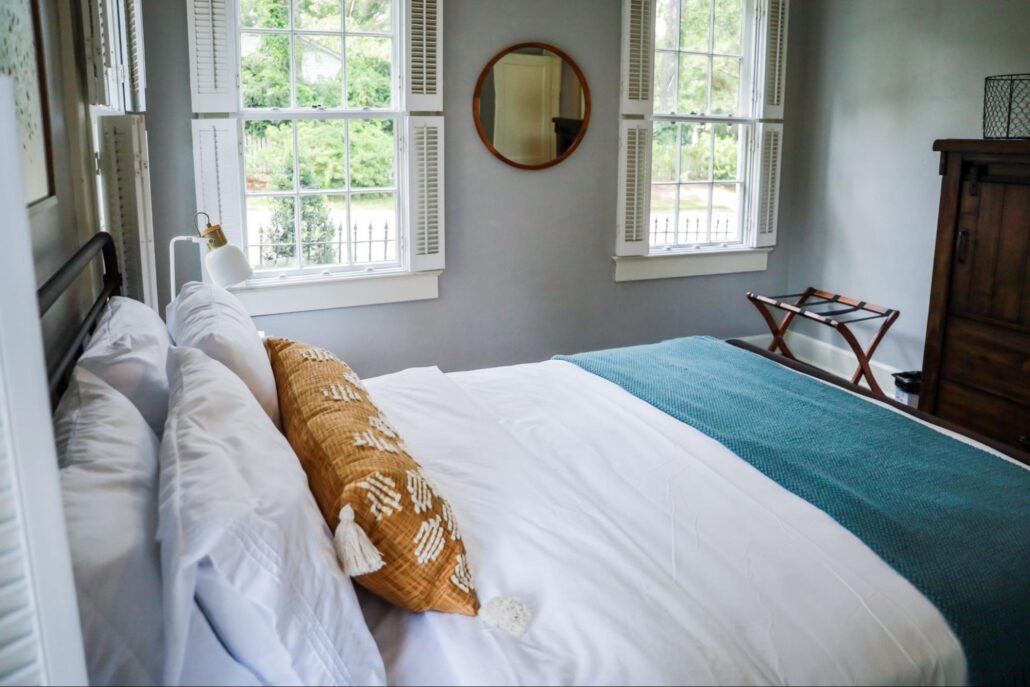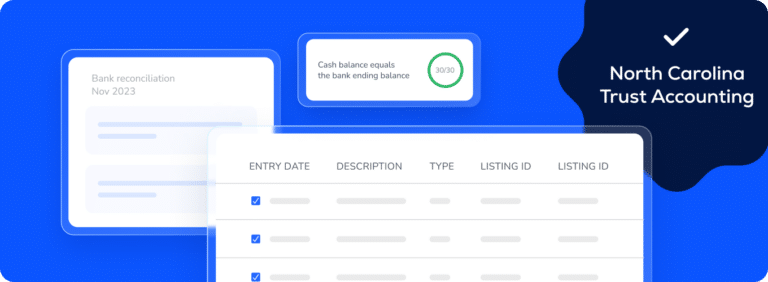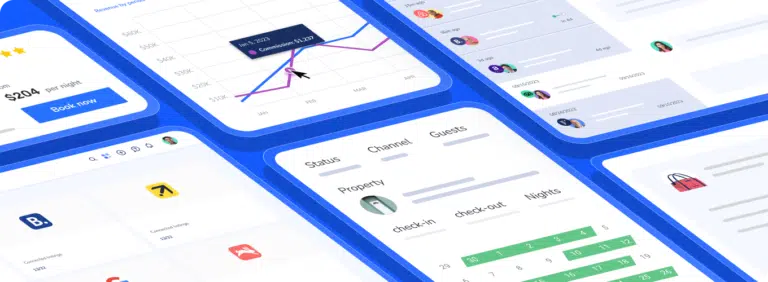This is a guest post by DPGO, an AI-driven dynamic pricing engine for short-term rentals
Rental arbitrage is arguably the newest frontier of the vacation rental business. As an industry, the vacation rental space is constantly shifting and rental arbitrage is certainly the easiest way to get into the game. You can start your business with just $5,000, and build towards a multi-property portfolio, with minimal risk and maximal reward.
Getting into the fine print, rental arbitrage is a business model where an individual rents a property, such as an apartment or a house, and then sublets it out to someone else. While the setup process can be quite complex, the idea itself is very simple. So simple in fact, that you can start your own business with just $5,000.
Before getting into the cost breakdown, it’s important to look at the pros and cons of starting a rental arbitrage business. Knowledge is power and if you’re going to rent a property to sublet it as a vacation rental, you need to know the potential risks and benefits.

Pros of rental arbitrage
Lower initial investment
One of the biggest plus points for rental arbitrage is the low start-up costs. As we said before, you can get started in rental arbitrage with just $5,000. It’s a pretty safe bet that you can find an apartment to rent for $2,000 per month. To this, add in a 50% rent deposit of $1,000. Next, pick up lower-cost furniture from places like IKEA or Craigslist and other supplies you need for a total of $2,000. Your total is now $5,000 and you’ve got yourself a rental arbitrage business!
Top Tip: Try to ensure that almost every couch in your rental is a sleeper coach. This allows you to accommodate more people and charge extra person fees, which can add $50 per person to your booking!
Low levels of risk
If you’re not the owner of the property, the risk of vacation rentals is minimal. Of course, if you’re going to sublet, you should invest in rental insurance, but it doesn’t change the fact that your only risk is your initial rental deposit, which is normally 50% of your monthly rent.
Creating diverse property portfolios
As you’re not purchasing these properties, your rental portfolio could include a wide variety of property types from apartments to houses and chalets. If you identify your ideal location’s standard visitor, you can start to determine which property types will be the most popular.
Higher profit margins
With rental arbitrage, you’re not paying for property maintenance or property taxes. These are most likely built into your monthly rent value. This means that your overhead costs are lower and there’s room for far higher profit margins.

Cons of rental arbitrage
Finding a property
Arguably, the majority of property owners who are willing to rent their property out as a vacation rental would rather manage the process themselves. However, some would rather have a steady, assured income every month and simply do not have the time to manage a vacation rental.
Legal risks
Legal jargon is not always easy to understand for the everyday individual and this can lead to accidental law breaks. Local government ordinances, laws, and even building regulations can make your rental arbitrage plans illegal. Make sure you’ve read up on your local laws and ensure you’re legally allowed to do what you’re doing.
Inconsistent occupancy rates
Rental arbitrage does not protect you from inconsistent occupancy rates and bookings. Even though the property is not yours and the risk is lower, you still might find yourself paying rent on a property that you cannot sublet as frequently as you might want to. March to October is the most popular time for vacation rentals. Remember to factor this in when you’re working on your annual financial plan.
There are ways around inconsistent booking levels and one of them is optimized pricing. DPGO has one of the most advanced pricing engines in the industry and can increase your occupancy rates by up to 30%. New users can enjoy a free 30-day trial to experience the benefits firsthand.
Management time
If you do decide to set up vacation rentals in a few properties, management time will also be an issue if you’re not making use of property management systems or you work full time. Starting small is the best way to dip your toe into the industry and get a sense of whether you’re confident enough to invest fully.

How to keep your rental arbitrage business safe
One of the most important aspects of the rental arbitrage process is to make sure that you, the property owner and the guest are all protected.
The property owner will very likely demand some sort of in-depth leasing agreement where you either agree to a higher deposit to protect against damage costs or, in some cases, they even ask for a percentage of your earnings.
Confirm that subletting is permitted
Before starting a rental arbitrage business, make sure that subletting is allowed in the rental agreement or lease. Violating the lease agreement can lead to eviction or legal issues. We cannot stress this enough – never sublet a property without the owner’s permission – you will be prosecuted.
Put everything in writing
When dealing with complex business arrangements like rental arbitrage, always ensure that you put everything in writing. Having every piece of correspondence in writing could help if a disagreement arises.
Insurance is key
Rental arbitrage involves assuming the role of a landlord, which comes with its own set of risks and liabilities. Make sure that you have the appropriate insurance coverage, such as liability insurance and property insurance, to protect yourself and the property owner in case of any damages or accidents.
Set up a comprehensive rental agreement
A comprehensive guest agreement can help protect you, the property owner, and the guests by outlining the rules and responsibilities for all parties. Include details such as check-in and check-out procedures, house rules, and contact information for emergency situations.
Fix small maintenance issues
As the subletting host, it is your responsibility to maintain the property and ensure that it is safe and clean for guests. Regularly inspect the property for any damages, perform necessary repairs and maintenance, and provide necessary amenities for guests.
Communicate with the property owner
Keep the property owner informed about the status of the property and any issues that arise. Communicating regularly ensures that both parties are on the same page and that any concerns are addressed promptly.

It can be challenging to convince a property owner to agree to rental arbitrage, as they may be wary of the potential risks and liabilities involved. Here are some tips that may help you make your case:
Explain the potential benefits
Be clear and transparent about the potential benefits of rental arbitrage, such as a steady stream of rental income, minimal vacancy periods, and the potential for increased profits.
Offer higher rent
Property owners are often more willing to consider rental arbitrage if they can earn a higher rent. Offer to pay a higher monthly rent than what they are currently asking for in exchange for the ability to sublet the property.
Provide references
To build trust and demonstrate that you are a reliable tenant, provide references from previous landlords and proof of income that shows you are capable of paying rent on time.
Discuss your plans
Property owners may be more willing to consider rental arbitrage if they believe that you will take good care of the property and attract responsible tenants. It is important to clearly outline your plans for managing the property. Please ensure that there are no spelling, grammar, or punctuation errors. such as your cleaning and maintenance procedures and your screening process for tenants.
Be open to negotiation
Be willing to negotiate and compromise with the property owner. They may have concerns or reservations that you can address by adjusting the terms of the agreement or offering additional incentives.
Analyze the market
Market research is critical when embarking on a rental arbitrage venture. Finding a viable location can be a painstaking process because access to vacation rental market data is often limited. DPGO created Markets to fix just this issue. To accurately determine the viability of a market you’ll need insight into the average daily rate, occupancy, market supply, rental size, and rental type. You can access all of these insights for free via Markets by DPGO.





